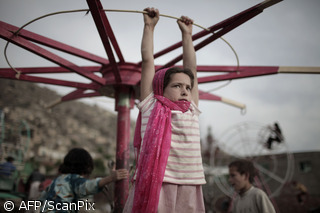EU continues support for victims of landmines
 Every year 10 000 people lose their lives due to landmines. Many more suffer irreversible injuries or are affected by the loss of a loved one. A large proportion of those killed or injured are civilians, and include women and children.
Every year 10 000 people lose their lives due to landmines. Many more suffer irreversible injuries or are affected by the loss of a loved one. A large proportion of those killed or injured are civilians, and include women and children.
Despite international efforts to mitigate impact caused by the use of landmines worldwide, approximately 65 countries are still affected by these or other unexploded devices.
The EU has made both a political and financial commitment to the international campaign. Since its entry into force in 1997, the EU has supported the overall objective of the Mine Ban Treaty (Ottawa Convention).
Financially, the EU and its member countries have committed €1.8 billion in support of the Convention between 2002 and 2009. From the Union’s budget, some 44 countries received more than €300 million between them over the same period for reducing the threat posed by landmines and to assisting victims.
Currently, the EU is supporting projects such as the following:
- In Angola, the overall objective is the re–establishment of minimum living conditions, as well as improving access to areas affected by mines and other unexploded devices
- In Bosnia–Herzegovina, activities include a mine clearance survey, and financing equipment and training for the country’s Mine Action Centre
- Sri Lanka is receiving support for demining programmes that will eventually enable the resettlement of internally displaced persons
Elsewhere, the EU is contributing to mine risk education as well as assistance programmes for victims.
While many countries depend on this longer term assistance, the EU is also able to act swiftly during and after conflict to participate in clearance operations or provide immediate assistance to victims.
Mine action is part of all of the EU’s external assistance instruments, and thus a key element in all humanitarian and development policies. Countries receiving EU assistance are also asked to prioritise mine action, which ensures national ownership of programmes and ensures a long–term impact.